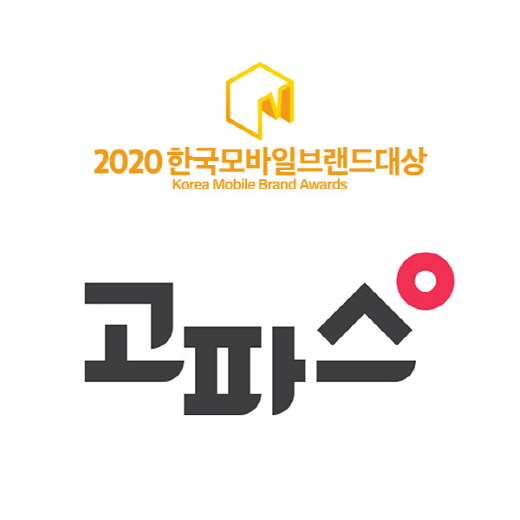
Cho Jaeyeon  crimson2315@korea.ac.kr
crimson2315@korea.ac.kr
The newly elected president of Korea University (KU), Lee Ki-Su has declared that KU should transform into a global university. As already reported by The Granite Tower (GT) in the last issue, he stated at his inauguration ceremony that globalization cannot be ignored if we are to be part of today’s world. He defined his attitude with the slogan ‘'Global Pride with Spirit,’ and also avowed himself to be a global positioning supervisor (GPS) type of president. His ultimate purpose is for KU to be ranked in the top hundred universities in the world before 2012.
For this to be realized, President Lee suggested two strategies. First, he has pledged to build a KU campus in Los Angeles that will be a stepping stone towards a globalized KU. Second, he has emphasized linguistic ability. KU will educate its students to have a good command of three different languages: English, one from Europe (German, French or Italian) and a third from Asia (Chinese or Japanese). President Lee firmly believes in the importance of language competence. “I am convinced that students can survive only if they can speak three foreign languages in the age of globalization,” he said at an interview with one influential newspaper.
According to an interview in The Korea University News, he briefly revealed his plan. “I intend to open foreign languages courses during vacation. Student taking a two-month course four times during the undergraduate years will have studied foreign languages for eight months.“ He added that if students dedicate themselves to foreign learn language, they will be able to speak foreign languages proficiently. However, the detailed blueprint of the project is not yet settled, and the president is still discussing it with the dean of Academic Affairs and College of Liberal Arts.
Globalization and intensification of English education were the main goals of KU since former president Euh Yoon-Dae was in his office. He adopted a globalization policy under the slogan of ‘Global Pride’ and strengthened English education in KU. He increased lectures in English and required professors to teach in English. Last year, the proportion of courses in English reached around 37% of total courses. At the same time, Euh mandated every student to take more than five courses in English before graduation. Although it was denounced on campus and elsewhere, globalization was the main reason behind KU’s rise in university rankings during former president Euh tenure in office; its global and national ranking was the highest in its history. However, there had been no plan to foster trilinguists until now.
Pros and Cons of the trilingual project
GT interviewed KU students and a professor to listen to their voices. Though many students agreed with the new plan’s motive, they also cast doubt over practicality of this declaration.
Lee Eun-young (’08, College of Political Science and Economics) commented favorably on the project. “I read an article about this policy before entering the university. I am in favor of it because the university offers the opportunity to experience and study diverse languages and cultures. Learning foreign language is not just mastering a certain ‘language’, but also studying about the cultures and society of other countries.” However, she also pointed out a side effect of the project. “Since entering the university, I have studied diverse subjects and taken part in various activities and realized that learning languages is not everything. Students can miss many things while striving to learn only language,” she said. She also maintained that requiring trilingual proficiency of every student is not rational because there are students who do not need to learn three languages. “Some students would have to study only foreign languages for several years to meet the requirements for graduation. Therefore, I think the university has to consider the major and aptitude of students and listen to student opinions,” she added.
Some students said that the project would be effective if its details were adjusted. Baek SeungHo (’06, Computer and Communication Engineering) said: “I like learning languages and I agree with the project’s position. However, the problem is that the burden of every student’s own major studies is heavy enough. Personally, I do not want to lessen my major studies to learn languages. Two more languages added to major studies would be a heavy burden. Frankly, if the university does not open good courses for four-year education and leaves the burden of learning language to students, I will be opposed to it.”
Chung, Gun-jin (’04, Geography Education) pointed out logistical complications with the project. “I think the purpose of the project is desirable because these days students who can speak many languages have the advantage, like the president said. However, it is hard to tell whether I am for or against because the details of the project have not been revealed yet. Around two thousands students enter KU every year, and according to the president’s plan, they will have to take a two-month language course four times. So, at least four thousand students will take courses during vacation. If they are to learn foreign languages in eight months, one class should consist of 10-15 students for if students per class are more than that number, it would be ineffective. At the same time it will be hard to supply lecturers for 300-400 classes. Available classrooms and increased tuition are remaining problems, too. If all these problems are not solved, I think it would be more effective to strengthen the courses at The Institute of Foreign Language Studies,” he said.
On the other hand, graduate Lee Kang-min (’01, Electronics & Information Engineering) raised the question whether the project would produce satisfactory results. “First, there are many people who cannot speak English. Is it really possible to make students fluent in three foreign languages? Second, if students take language courses in vacation, who will cover the expenses?” He asserted that language education should teach practical ‘living language’ instead of ‘dead language’, and the university will have to create an environment that motivates students to study foreign languages.
Moreover, Jung Ha Joong (’01, Life Sciences & Biotechnology) dismissed the project as too ambitious. “I think it is impossible. For instance, most KU students have studied English since they were young but many of them are still poor at English. If students study their major and three languages at the same time, all of them will be ruined. I can feel the zeal of the president, but the project is unrealistic,” said him.
Professor Kim Jun-yeon (Chinese Language & Literature, College of Liberal Arts) also criticized the project. “Foreign languages are not mastered by taking a few courses. Great effort and much time are required to learn a foreign language. For instance, a student cannot learn Chinese by attending a 3-credit Chinese lecture. He or she has to make additional efforts, such as going abroad for study.” Also, he asserted the importance of concentration. “Recently there is overinvestment in English. Everyone studies English for the Test of English for International Communication (TOEIC) or Test of English as a Foreign Language (TOEFL), but is it really necessary? If they get a job that requires the use of English, then it will be necessary. But these days every company requires English ability from all prospective employees, so they study it. I am worried that the high burden of learning language will produce only generalists, not specialists. More important than mastering foreign languages is cultivating one’s own specialty.” At the same time, he said the trilingual policy should be considered only after collecting student opinions.
출처 : 고려대학교 고파스 2024-04-26 22:27:20:







